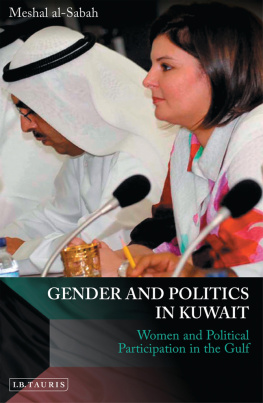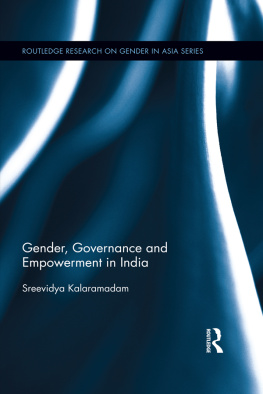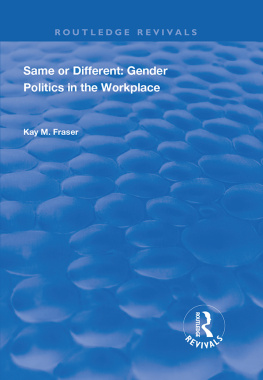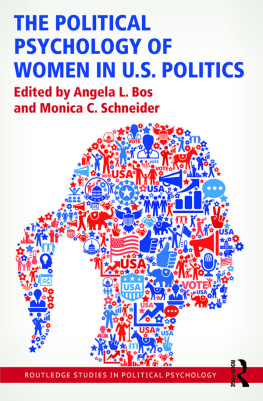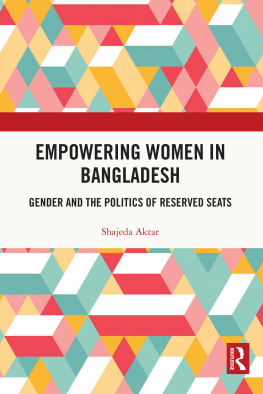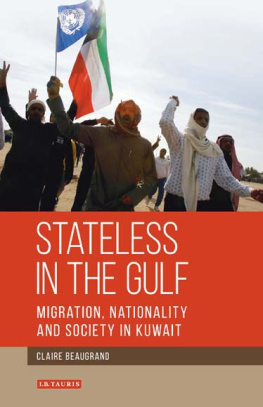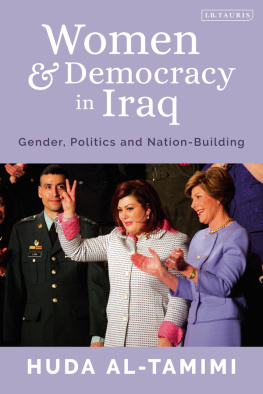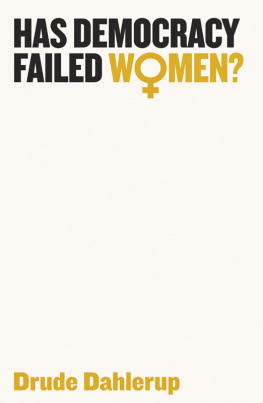Meshal Al-Sabah is a Visiting Research Fellow at the Department of Middle East and Mediterranean Studies, Kings College London. Educated at the University of Chicago, the Massachusetts Institute of Technology (MIT) and Harvard University, he holds a PhD in Middle Eastern Studies from Kings College London.
The role of women in society is one of the priority issues of the United Nations Millennium Project, thus highlighting the issues importance on a global level. But the matter is of particular importance in terms of the modernization attempts of the Gulf Cooperation Council States in the wake of the Arab Spring. Meshal Al-Sabah shows very well how the Gulf crisis of 199091, following Saddam Husseins invasion of Kuwait, was a catalyst in the countrys approach to the issue of women in politics. Dealing with the hugely important and topical issue of the role of women in society and politics, this is a comprehensive and reader-friendly work. I believe that it will make a significant contribution to the scholarship on Kuwait, the Gulf and the role of women in politics as well as wider Arab society.
Professor Rory Miller, Director of the Middle East and Mediterranean Studies Programme, Kings College London
In the Persian Gulf region, the issue of womens rights promotes fierce and intense debate, and most Westerners see the unique Islamic culture of the region as oppressive to women. States such as the United Arab Emirates (UAE), Kuwait and Bahrain are not as backwards as commonly perceived in this respect, as they actively promote the equality of women in education and employment, or are, at least, moving towards that ideal. Instead of importing Western democracy into the region, a process that is inevitably doomed to fail, these states are developing Islamic democracies, blending Islamic culture with many of the recognized freedoms and rights enjoyed by developed nations. Despite this progress, the emancipation of women has been a major exception to this democratization, meeting resistance from traditionalists and Islamic scholars. Giving women the right to participate in the political process has been slow, because it encompasses wider issues than womens rights alone. The issue of womens political rights in the Gulf Cooperation Council (GCC) highlights the tension between classes, the differing ideologies of Shiis and Sunnis and, most importantly, the battle between liberal secularists and traditional Islamists.
The State of Kuwait acts as a microcosm of the Gulf region as a whole, and studying this state reveals the mood and goals of the inhabitants, showing how womens rights lie at the heart of democratization. The history of feminism in Kuwait captures the transformation from the Western feminism developed in the 1960s and 1970s, where activists believed that gender was a social construct acting as a barrier to true equality, to an Islamic feminism, where men and women enjoy equal rights but maintain gender-specific roles. The fight for the vote in Kuwait showed that Western feminism is alien to Arab cultures, antagonizing traditionalists and preventing compromise. Conversely, the Islamic feminism adopted by Kuwaiti activists after the 1996 election was not only palatable to most sections of society, but was supported by all but the most extreme Islamists in the state and National Assembly. Despite this, some of the most intense resistance to emancipation has been from women themselves, largely because many women were used to a welfare system that was promoted by a social contract between Kuwaits rulers and people, which had created a culture of dependency. Lynda Stone, in The Education Feminism Reader, and Diane Bell and Renate Klein in Radically Speaking: Feminism Reclaimed, elucidate the idea that feminism can set woman against woman and create divisions where there should be none. The culture of depending upon the state to provide also promoted voter apathy, since Kuwaitis were used to having the state cater to their needs the fact that they were indirectly guaranteed a decent standard of living suppressed any potential political dynamism and activism.
In terms of human rights, democratization, freedom of the press and economic development, Kuwait has always been regarded as a progressive and forward-thinking GCC state, and it acted as a model for development across the Arab world, until the UAE, Qatar and Bahrain gained the upper hand in the early twenty-first century showing the benefits of investing in education and infrastructure. The other factor that made Kuwait unique was the Gulf conflict of 1990, when Iraq occupied the emirate and met a campaign of insurrection from the Kuwaiti resistance. The bravery of Kuwaiti women during this conflict, subsequently lauded in literature and art, acted as a catalyst for the process of democratization and the re-energizing of the womens rights movement. The long debate, which raged backwards and forwards, ultimately showed the power of womens education. It showed how emancipation is no threat to an emerging Islamic democracy, and how a strong and educated female workforce can drive a country forwards.

